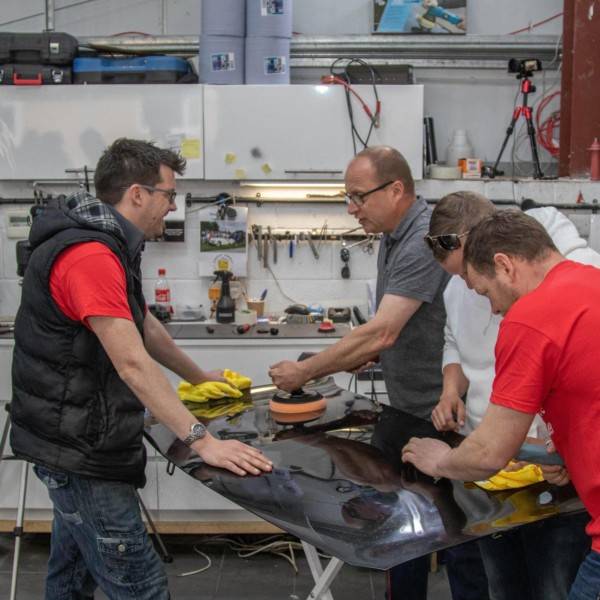
How does your water hardness affect your detailing business?
One question we ask course attendees attending our syllabus level courses when starting a detailing business is:
Where are you going to be based?
Where in the UK (or the rest of the world for that matter) is important for a number of business and regulatory aspects, from local area authority regulations and assistance to different environmental laws applying to the devolved areas of the UK, but one more technical reason is down to the water you draw when working.
TDS, or Total Dissolved Solids is the measurement of how hard your water is – and this varies massively from east to west, north to south and can affect your wash process, your aftercare advice, and the speed at which you can work in different weather conditions. The dissolved solids in the wash water and rinse water can cause massive issues from water spotting if allowed to dry on a vehicle – ranging from the need to wipe down with a dedicated water spot remover, or a mild acid solution made with white vinegar and water, through to correction and even sanding if the paintwork has deep etch marks from the expansion of the surface at different rates under mineral deposits.
In the diagrams below – one more detailed than the other, apologies Scotland – you can see where you may sit on the scale in your area in terms of water hardness, and this can translate to needing either zero extra equipment, or potentially having to invest in DI filters, Reverse Osmosis systems, or using third party suppliers such as Spotless Water who provide stations to fill tanks with ready filtered water for around 3.5p per litre – under £20 for a 500l tank. It’s worth regularly testing your supply using a cheap TDS meter for accuracy and the efficiency of your treatment system.

Filtered water for washing cars you say?!
Whilst it seems extravagant, using low solids water will give you a much easier time when washing vehicles, especially over the summer months when the sun can play havoc with washing conditions and could save you hours in clearing up dried water marks and drips from washed vehicles – effectively allowing them to dry by themselves following a thorough rinse. Costs for this are actually very little when you compare it to the time lost and the extra chemicals needed, and for the super eco-efficient, a rainwater recovery system can fill an IBC tank for you with a bit of home ingenuity for a free supply, once cleaned for dirt particles which exist in every raindrop, of distilled water.
Small adjustments to something as simple as a water supply can be the difference of an extra job a day, so it’s not an extravagance, it’s a solid business decision. It’s that or relocate to a soft water area, which does seem extravagant.
UK Detailing Academy specialises in training entrants to the detailing industry with advice such as this to ensure you hit the ground running and have a successful and efficient business model to build on. Learn more on our course syllabus pages, and get in touch if you would like to discuss any aspect further.


